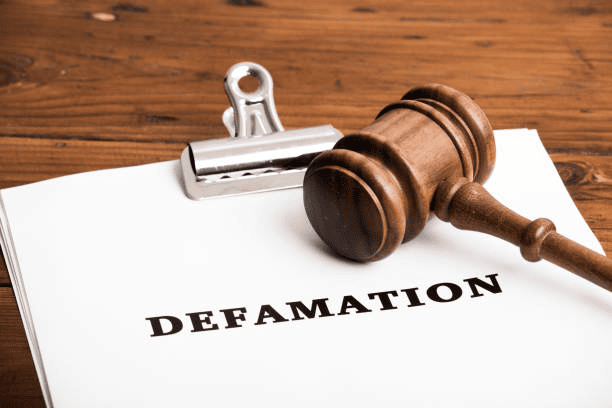Defamation of character, also known simply as defamation, is a legal term for the communication of false defamatory statements that damage someone’s reputation. A defamatory statement is one that is likely to lead to a reasonable person to think less of the person about who the statement is made.
It can have serious consequences for both the person who makes the defamatory statement and the person whose reputation is harmed.
In New South Wales, the law that governs matters relating to the defamation of character is the Defamation Act 2005. One of the purposes of this Act is to provide effective and fair remedies for persons whose reputations are harmed by the publication of defamatory matter, among others.
Defamation of Character: Elements
For defamation to exist, the following elements must concur:
- False statement or defamatory material. The statement or defamatory material must be false. A false statement is untrue, and the person making the statement must know it is untrue or be reckless in not knowing whether it is true.
- Communication. The statement must be communicated to someone other than the person whose reputation is harmed. This means that statements made in private to the person they are about are not defamation.
- Harm to reputation. The statement must also cause harm to the person’s reputation. The harm done can be financial, such as if the person loses their job or is unable to get a loan, or it can be social, such as if the person is ostracized or ridiculed by their community.
In some cases, even true statements can be defamatory if they are communicated in a way that is harmful to someone’s reputation. For example, if someone publishes a true story about someone’s past criminal convictions, but the story is published in a way that suggests that the person is still a danger to the community, this could be defamatory.
Defamation of Character Law: Defamation Act 2005
The Defamation Act 2005 (NSW) is the primary legislation governing defamation law in the state of New South Wales, Australia. It was enacted in 2005 to:
- Promote uniform defamation legislation and uniform defamation laws across Australia. This made legal proceedings more consistent and efficient across states.
- Repeal the previous Defamation Act 1974. This law modernised the old one and incorporated changes made over time.
- Amend other relevant Acts. These changes included updating criminal defamation provisions and the limitation period for defamation claims.
Key features of the Defamation Act 2005
- Single cause of action. Instead of separate claims for slander (spoken defamation) and libel (written defamation), there is now one unified cause of action for any harmful publication.
- Serious harm element. To successfully sue for defamation, the plaintiff must prove the publication caused them “serious harm”. This raised the threshold for legal action and aimed to protect freedom of speech.
- Concerns notice and offer to make amends. Before commencing legal proceedings, a plaintiff must issue a concerns notice to the publisher. The publisher then has the opportunity to make an offer to make amends, which can resolve the dispute without litigation.
- Limits on damages. There are restrictions on the amount of damages that can be awarded, particularly for non-economic loss.

Defamation of Character: Defences under the Act
The Defamation Act 2005 (NSW) provides several defences that parties can raise against a defamation claim. Here are the provisions that set the rules as to defences available:
- Defence of justification. It is a defence to the publication of defamatory matter if the defendant proves that the defamatory imputations carried by the matter of which the plaintiff complains are substantially true. (s25)
- Defence of contextual truth. To constitute as a defence, the defendant must prove that the imputations are substantially true. Also, the imputations should not further harm the reputation of the plaintiff because of the substantial truth of the contextual imputations. (s26)
- Defence of absolute privilege. It is a defence to the publication of defamatory matter if the defendant proves that it was published on an occasion of absolute privilege. (s27)
- Defence of publication of public documents. A defence may constitute of the fact that the publication of defamatory matter was contained in a public document or a fair copy of such. (s28)
Other Defences
- Defence of fair report of proceedings of public concern. The defendant may also use this as a defence if he or she proves that the matter was, or was contained in, a fair report of any proceedings of public concern. (s29)
- Defence of publication of matter concerning issue of public interest. If the matters concern public interest, the defendant may use it as a defence. (s29A)
- Defence of scientific or academic peer review. If the matter relates to a scientific or academic journal or issue, the defendant may use it as a defence. (s30A)
- Defences of honest opinion. An expression of opinion may also be a defence. (s31)
- Defence of innocent dissemination. Publishing and not knowing that the matter is defamatory may be a defence for the defendant. However, the lack of knowledge must not be due to negligence on his or her part. (s32)
Defamation of Character Defences as an Additional Defence
Section 24 of the Act states that a defence under this Act is additional to any other defence or exclusion of liability available to the defendant. Further, this does not of itself vitiate, limit or abrogate any other defence or exclusion of liability.

Your Reputation is at Stake: Don’t Face Defamation of Character Alone
If you find yourself facing a defamation lawsuit, it’s crucial to take immediate action and seek legal counsel from a qualified defamation lawyer.
Defamation of character is a criminal offence that can inflict significant damage on your personal and professional life. It can cause emotional distress, reputational harm, and even financial losses. That’s why it’s essential to act swiftly and decisively to protect your rights and interests.
Why hire a criminal law solicitor from JB Solicitors? Dealing with the complexities of defamation law can be challenging, especially when facing a lawsuit. Our experienced defamation lawyers can provide invaluable guidance and support throughout the legal process.
Here are some additional steps you can take:
- Gather any evidence that supports your case, such as emails, documents, or witness statements.
- Avoid making any public statements about the case during court proceedings
- Keep a record of all communications with the plaintiff or their attorney.
By taking these steps and seeking legal counsel, you can increase your chances of a successful outcome in your defamation case. Contact us today if you have any question concerning defamation of character in NSW and other criminal laws.
